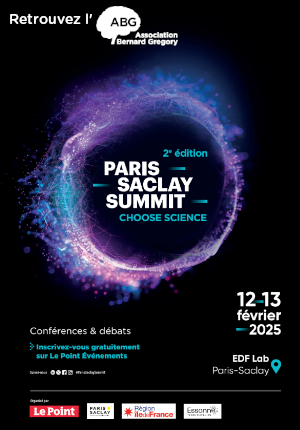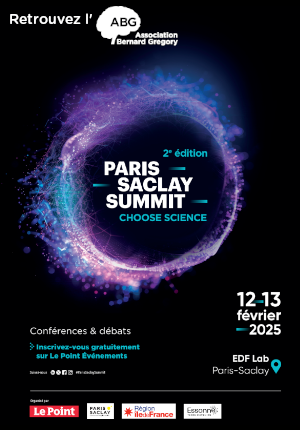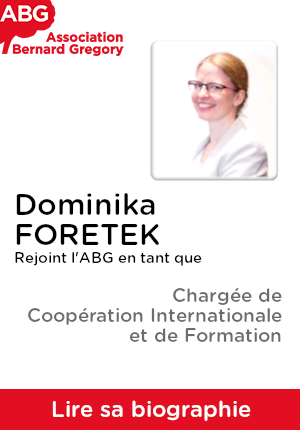Data-Driven Surrogate Modeling for Wire Arc Additive Manufacturing
| ABG-128213 | Thesis topic | |
| 2025-01-29 | Public funding alone (i.e. government, region, European, international organization research grant) |

- Digital
Topic description
We are seeking a highly motivated and talented PhD candidate to join our international research team working on the SAMSARA project. This project aims to enhance the sustainability and reliability of Wire Arc Additive Manufacturing (WAAM) for repair applications by developing advanced data-driven surrogate models. This position is a fully funded 3-year PhD position based at GeM (Institut de Recherche en Génie Civil et Mécanique) at Ecole Centrale de Nantes (ECN), France, with a planned research stay in Singapore at the Institute of High Performance Computing which is part of A*STAR.
Research Focus
The PhD thesis will focus on developing and validating data-driven surrogate models for the WAAM process. The core objective is to create computationally efficient models that can accurately predict and mitigate common defects such as trickling, swelling, and humping, which are caused by heat accumulation during WAAM. The successful candidate will work on integrating high-fidelity simulation data with experimental data to develop robust and reliable models.
This research will contribute directly to the broader goal of making WAAM a more effective tool for the circular economy by optimizing repair processes and reducing waste.
Key Responsibilities
The PhD candidate will be responsible for the following:
- Conducting a thorough literature review of existing hybrid data-driven modeling techniques.
- Developing novel data-driven surrogate models that integrate simulation and experimental data.
- Incorporating first-principle physics into the models when appropriate, either in the training metrics or the model structure.
- Utilizing and exploring advanced machine learning techniques, such as deep neural networks (DNN), physics-informed neural networks (PINN), and graph neural networks (GNN).
- Processing and integrating experimental data from in-process monitoring to improve the model’s accuracy and applicability.
- Validating the developed models through rigorous testing with both simulated and experimental data.
- Working with team members in France and Singapore to ensure that the models are applicable to a variety of situations.
- Optimizing WAAM process parameters for repair operations using the validated models.
- Disseminating research findings through publications in peer-reviewed journals and presentations at international conferences.
Supervision
The PhD student will be supervised by:
- Assoc. Pr. Lucas Lestandi (GeM-ECN) will be the main supervisor, he is an expert in data and model reduction, and surrogate modeling in additive manufacturing.
- Pr. Guillaume Racineux (GeM-ECN) will be the “Directeur de thèse” (thesis director), he is a specialist in the field of processes and multiphysics modelling such as solid state welding processes and high pulsed power processes.
Strong interraction with the project partners is expected, in particular with
- Dr. Mark H. John (IHPC), an expert in material modeling, mechanical engineering with strong experience in modeling AM processess
- Pr. Mathieu Ritou (LS2N), an expert in Smart Manufacturing, monitoring and Artificial Intelligence applied to manufacturing processes.
Research Environment
The PhD candidate will be part of a dynamic and collaborative research team. The project is a joint effort between leading research institutions in Nantes, France (GeM, LS2N and IMN) and Singapore (IHPC).
The candidate will be hosted in Ecole Centrale de Nantes at GeM lab in the MECNUM team. He/She will have access to state-of-the-art facilities and will have the opportunity to collaborate with international experts in the field. The PhD student is expected to spend time at the IHPC in Singapore to facilitate research collaboration.
Funding
This position is fully funded for 3 years by SAMSARA project, travel expenses, and conference attendance.
First year salary is 2200€/month as per Arrêté du 26 décembre 2022.
Additional Information
For more information about the SAMSARA project, visit the project webpage https://llestandi.github.io/projects/samsara.
Relevant work on the topic by team members
[1] Lestandi, L., Wong, J. C., Dong, G. Y., Kuehsamy, S. J., Mikula, J., Vastola, G., … Jhon, M. H. (2023). Data-driven surrogate modelling of residual stresses in Laser Powder-Bed Fusion. International Journal of Computer Integrated Manufacturing, 37(6), 685–707. https://doi.org/10.1080/0951192X.2023.2257628
[2] H. Chabeauti, M. Ritou, B. Lavisse, G. Germain, V. Charbonnier, Digital twin of forged part to reduce distortion in machining,CIRP Ann. 72 (2023) 77–80
Starting date
Funding category
Funding further details
Presentation of host institution and host laboratory
École Centrale de Nantes – A Leading Institution for Research and Innovation
École Centrale de Nantes (Centrale Nantes) is a prestigious French Grande École d’Ingénieurs, renowned for its excellence in engineering, science, and technology. Founded in 1919, the institution is part of the Centrale Group, a network of top-tier engineering schools in France, and is recognized for its strong industry partnerships and cutting-edge research.
A Dynamic Research Environment
Centrale Nantes is home to six high-level research laboratories, covering a wide range of disciplines, including:
- Fluid Mechanics & Energy (LHEEA)
- Civil Engineering & Materials (GeM)
- Robotics, Control & AI (LS2N)
The school collaborates with major research institutions (CNRS, INRIA, IFREMER, etc.) and industries, offering PhD students an exceptional research ecosystem with access to state-of-the-art facilities, including supercomputing, wave basins, and experimental platforms.
- An Internationally Recognized Institution
- Ranked among the top engineering schools in France
- Strong international collaborations with universities and research centers worldwide
- Part of European and global research networks
A PhD at Centrale Nantes provides:
✔ A high-quality research environment with interdisciplinary collaboration
✔ Access to world-class laboratories and experimental facilities
✔ Strong industrial partnerships for applied research opportunities
✔ A vibrant, multicultural campus with international mobility programs
PhD title
Country where you obtained your PhD
Institution awarding doctoral degree
Candidate's profile
Required Skills and Qualifications
A Master’s degree in computer science, data science, applied mathematics, mechanical engineering, or a related field.
Strong background in at least two of the followingmachine learning, data analysis, and numerical modeling.
Experience with programming languages such as Python, C++ or similar, and machine learning libraries (e.g. TensorFlow, PyTorch).
Excellent problem-solving and analytical skills.
Ability to work both independently and as part of an international team.
Strong communication skills in English (written and oral).
Desirable Skills
A basic understanding of additive manufacturing processes, preferably WAAM is a plus.
Experience with finite element analysis (FEA) or computational fluid dynamics (CFD).
Familiarity with experimental data processing and signal analysis.
Experience with model order reduction techniques or surrogate modeling.
Vous avez déjà un compte ?
Nouvel utilisateur ?
Get ABG’s monthly newsletters including news, job offers, grants & fellowships and a selection of relevant events…
Discover our members
 ONERA - The French Aerospace Lab
ONERA - The French Aerospace Lab  Tecknowmetrix
Tecknowmetrix  Aérocentre, Pôle d'excellence régional
Aérocentre, Pôle d'excellence régional  CASDEN
CASDEN  ADEME
ADEME  Groupe AFNOR - Association française de normalisation
Groupe AFNOR - Association française de normalisation  Institut Sup'biotech de Paris
Institut Sup'biotech de Paris  Nokia Bell Labs France
Nokia Bell Labs France  Institut de Radioprotection et de Sureté Nucléaire - IRSN - Siège
Institut de Radioprotection et de Sureté Nucléaire - IRSN - Siège  Laboratoire National de Métrologie et d'Essais - LNE
Laboratoire National de Métrologie et d'Essais - LNE  PhDOOC
PhDOOC  SUEZ
SUEZ  MabDesign
MabDesign  TotalEnergies
TotalEnergies  Ifremer
Ifremer  MabDesign
MabDesign  CESI
CESI  Généthon
Généthon  ANRT
ANRT







